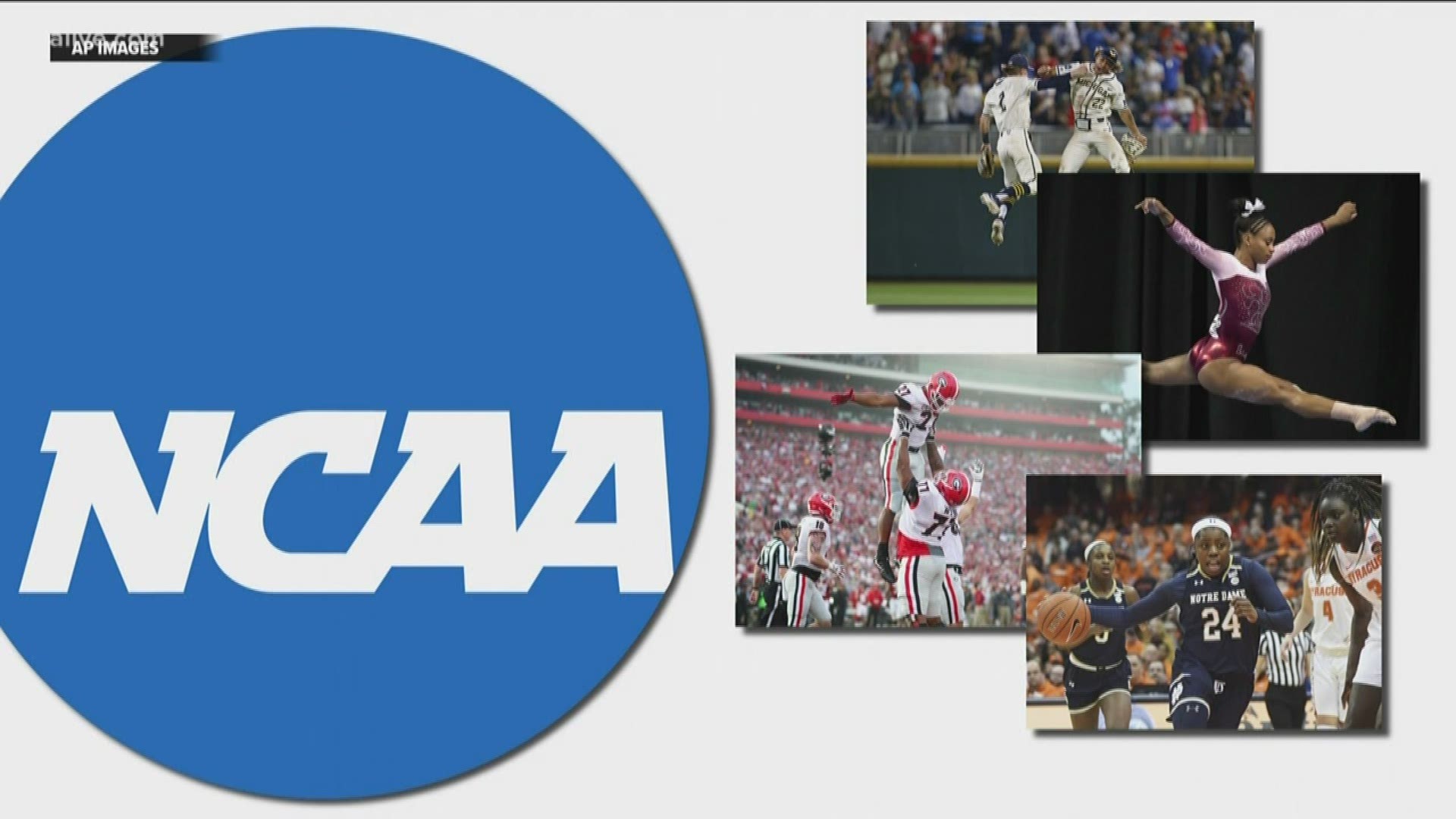The NCAA is heading toward a showdown with one of the biggest states in the nation, and the issue at stake might be the very concept of amateurism.
The organization is fighting a possible move by California to let college athletes profit off their likeness, threatening to ban schools in the state from championships if a bill moves forward that would protect student-athletes who wish, for example, to take money to appear in a commercial.
The NCAA has historically been cold to the idea but said last month it would consider allowing it after years of momentum toward allowing athletes to profit from their name and image.
However, it’s opposing California’s potential legislation, which wouldn’t take effect until 2023, arguing it would muddy the waters for all schools and athletes.
They want the state to hold off. It already passed the California Senate overwhelmingly last month.
For players who currently aren’t allowed to profit off their names, images and likenesses, a lot is at stake.
A letter sent to lawmakers from the NCAA implied that the bill, called the Fair Pay to Play Act, could leave California schools banned from NCAA championships.
That would include 23 D1 schools in the state, including the most recent champions in men’s golf, women’s tennis, women’s water polo, men’s gymnastics, women’s swimming and diving, volleyball (Stanford), softball, beach volleyball (UCLA), men’s swimming and diving (Cal), and men’s water polo (USC).
The letter from NCAA President Mark Emmert asked committees to postpone consideration of the legislation while the NCAA reviews its rules about an athlete's ability to make money off of themselves.
In May, the organization announced a "working group" made up of school presidents and administrators to look at issues raised by state and federal legislation concerning student-athlete compensation.
This isn't the first time this discussion has come up, with a similar bill proposed in North Carolina in March.
The NCAA has also faced multiple lawsuits in the past on the issue, including a landmark case in 2014 in which the organization lost in a federal court in California to Ed O’Bannon, a former UCLA basketball star who contended his image was being used without his permission in a video game.
That case led to the end of the popular EA Sports NCAA Football game, among others.
According to the NCAA, more than 150,000 student-athletes receive $2.4 billion in athletic scholarships each year from member colleges and universities.
Still, some argue it's not fair for coaches and schools to collect millions while athletes can’t even make money off their own popularity.
Famed college football coaches Nick Saban, of Alabama, and Steve Spurrier, who coached at Florida and South Carolina, have both said student-athletes deserve some sort of pay.
Emmert said passing a law right now, though, would create confusion both among member schools and among current and future student-athletes.
But some California lawmakers backing the compensation bill say it will set the standard and lead the way to change.
The bill went before a subcommittee on Tuesday, and it would need to pass the California State Assembly’s higher education committee by July 11 to have a chance for full passage this year.
Their legislative session ends in September, but the NCAA committee looking at the issue isn't expected to make its final report until October.
MORE SPORTS

